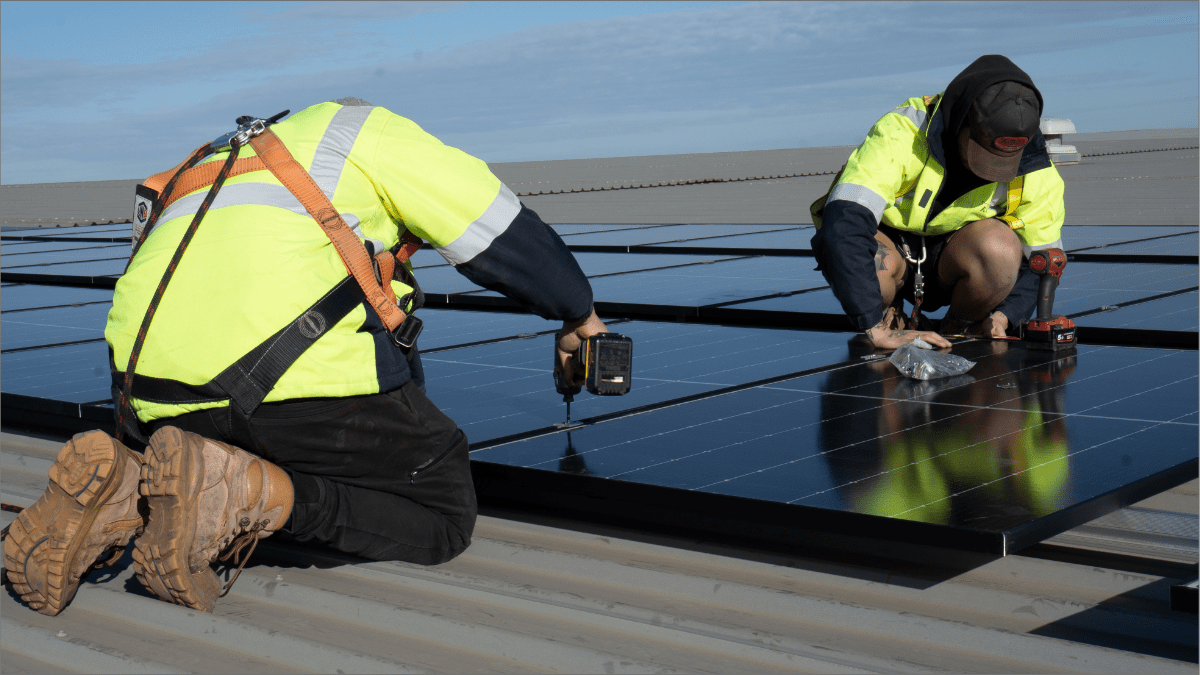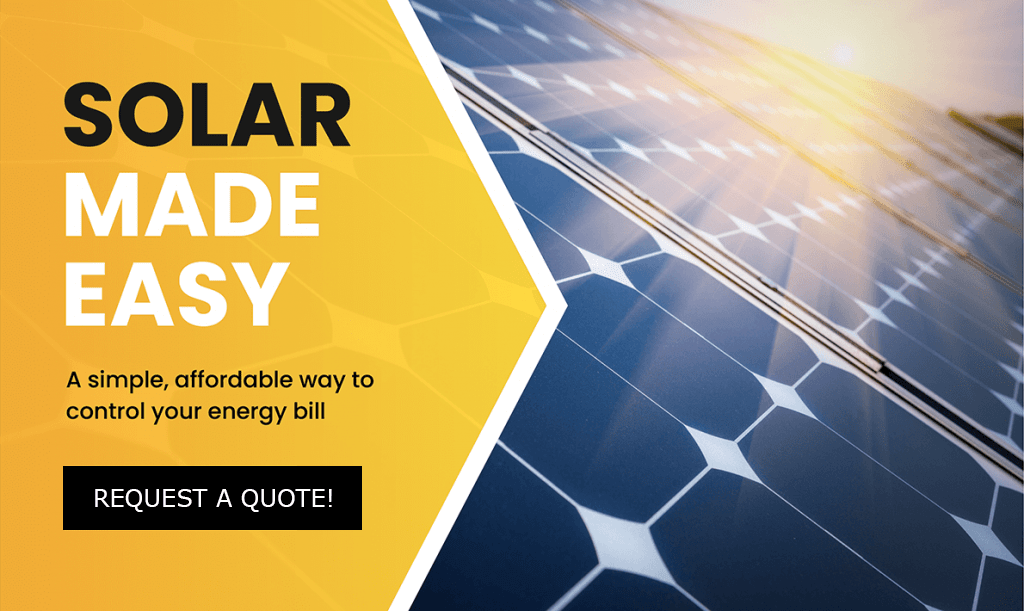
Getting your solar panel system maintained on a regular basis is not just important – it’s essential. A professional solar maintenance service will ensure:
your solar system is working properly.
your electricity bill savings are maximized.
the solar system is safe for everyone in your home or business, as well as technicians working on the electricity distribution network.
There are no ‘ifs and buts’ from industry authorities on this topic either. Both the Clean Energy Regulator and the Clean Energy Council clearly state that anyone who owns a solar panel system must get it serviced regularly by either a licensed electrician or a Clean Energy Accredited Solar Installer.
Whilst this is a good starting point it’s useful to have some practical guidance to make sure that when you get your solar system serviced, the job’s done right.
That’s the purpose of this article. Read on to get answers to the most common questions about solar panel maintenance, in particular:
Signs that your solar system needs a health check include a big increase in your electricity bill, an orange or red light on your inverter during the day, or panels that are noticeably dirty.
Your solar monitoring system may provide information that alerts you to any issues with your solar panel system. The better the solar monitoring you have, the better the information you’ll receive to help you – and your solar installer – proactively identify faults that need fixing.
Older solar systems tend to have very basic solar monitoring – if any at all. One of the advantages of getting your solar panel system upgraded is that you can get one of the latest smart solar monitoring apps set up on your phone or laptop. Not only does this give you peace of mind that your solar system is working correctly and efficiently, you’ll also be safeguarding the electrical safety of your property.
The very best advanced solar monitoring systems – like Solar Analytics – can instantly identify issues, send alert messages to your installer who can get on the job of sorting them out. Talk to us today if you’d like to find out more about Solar Analytics. It’s an investment you’ll find pays dividends in terms of improved solar performance, bigger bill savings and improved solar safety.
Before leaving this topic, it’s important to be aware that some potentially dangerous solar system faults are not immediately visible to the untrained eye – for example microcracks on solar panels, hot spots and damaged DC isolators. If left undetected, these faults can cause a lot of damage – even a solar roof fire. That’s why getting an accredited Clean Energy Council solar installer to undertake your solar panel maintenance on a regular basis is so crucial. Our Australian network of CEC solar installers have the skills to check your solar panel system is working properly. Get in touch if you’d like to arrange a solar system health check……………….
The absolute number one risk of a poorly maintained solar panel system is electrical fire – and the most common cause of solar panel fires are DC isolators.
A DC isolator is a manually operated switch next to a solar panel array which turns off the power flow from the panels to the inverter. It is currently a requirement under the Australian Standard that all solar power installations include a DC isolator switch as a safety feature to help protect firefighters from electrocution during a house fire.
But it seems that these DC isolator switches are the main culprit. Solar panel fires have increased more than 20 per cent in the last year, according to Fire NSW, with DC isolators identified as the cause in almost half these emergencies.
Worse still, the Clean Energy Regulator found that 3.3 per cent of solar power systems installed between 2010-2018 are either unsafe or potentially unsafe, based on an inspection of almost 30,000 solar installations. Whilst most of these systems don’t pose an immediate risk, if left un-serviced they could become unsafe.
As a response to this major safety issue, the Australian Standard was updated in 2019. It now requires all DC isolators to have a metallic shroud to protect them from the elements. That’s great news if you had a quality solar power system installed (with a quality DC isolator switch) after this Standard came into force – and it was installed properly by an accredited CEC solar installer. If that’s the case, you should expect your isolator to pose minimal fire risk.
However, if your isolator switch doesn’t have a cover, our recommendation is that the DC isolator should either be replaced or have a metal cover fitted over it. These are points that would be checked out as part of a thorough solar panel maintenance check.
The actual cost of a new DC isolator switch is next-to-nothing compared to the total cost of a solar system – under $100, plus installation costs. It’s well worth getting checked out if you have any concerns as the risks aren’t worth taking!
According to the Clean Energy Regulator, regular maintenance of your solar panel system should include the following checks:
It’s good practice to ask to see your provider’s solar panel maintenance checklist before you confirm your booking and make sure it covers the above points. You’ll also want to check that they’ll provide you with a detailed inspection report, so you know that everything has been properly reviewed. This will help sort out the good solar professional providers from the sloppy ones – and make sure your money is well spent.
Don’t forget: keep all paperwork from your solar installation as some faults may be covered by warranties.

Energy Safe Victoria recommends that solar panel systems are serviced every two years. They state that “the best way to identify faults and avoid house fires is regular servicing, especially for those systems installed prior to 2018.”
Clearly, if you have an older system getting it checked sooner rather than later is highly advisable – and then putting in place a regular maintenance schedule with your solar installer.
For a newer solar system installed from 2019 onwards, there should be less of a risk with the DC isolator. Having said that, erring on the side of caution and getting a bi-annual check makes sense when you consider the potential risks.
Energy Safe Victoria makes the important point that solar panel system maintenance should be undertaken by a licensed (A Grade) electrician, employed by a Registered Electrical Contractor. They also recommend that the electrician is accredited with the Clean Energy Council.
That advice makes complete sense when you think about it. After all, when you’re talking about the electrical safety of your home, you shouldn’t be making any compromises.
Whilst having grimy solar panels isn’t going to cause a house fire, getting them properly cleaned on a regular basis is worth doing.
In the same way that leaving your car out in the rain doesn’t get it clean, relying on rain to clean your panels doesn’t work either. Pollution, dust, bird droppings, sea salt, leaf litter – you name it – leaves a grimy film which compromises the performance of your solar panels.
No sunlight on panels = no power! If you don’t get them cleaned, hotspots and microcracks can form on your solar panels reducing their efficiency and increasing your power bills.
Where you live will depend on how dirty your solar panels get. There’s no hard and fast rule on how often you get them cleaned, but once every two years or so should be about right for most people.
That’s something you can ask your provider when they complete the solar panel maintenance check. They will be best positioned to give you the right advice – and probably even arrange for the solar panels to be professionally cleaned.
Get in touch with one of our solar experts who’ll be able to discuss your solar panel maintenance requirements and organize a solar system health check.
And, if you’re thinking about upgrading your solar system in Melbourne, Sydney or purchasing a new Solar Panels system in Gold Coast, talk to our solar experts to ensure you get the best quality on all your solar panel system components and system monitoring.
We are available! Have a question? Text us here.
 Text Us
Text Us
very nice submit, i certainly love this website, keep on it